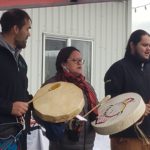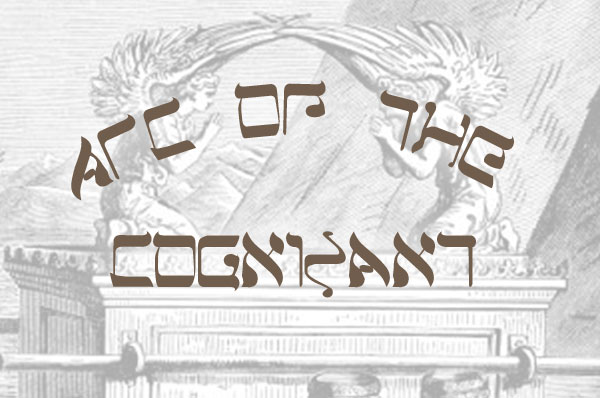In the wake of Supreme decision on Aboriginal Title, BC land is better off in the hands of its First Nations
Matter is Spirit moving slow enough to be known with the five physical senses. White man builds huge fire, stands way back. Indian man builds small fire, stands close. When the White Men came, we welcomed them as guests. We treat guests with generous hospitality, knowing they are not here to stay. We are still waiting for them to go home.—anonymous Native comment.
The Supreme Court of Canada “makes History”
I begin with a news story of gargantuan importance for Canada and all Canadians, aboriginal and non-aboriginal alike. I refer to the Supreme Court decision in the Tsilqo’tin case, also known as the Roger James case (note to readers: please research!).
It is a clear comment on the values of our society that this news item is not being talking about in coffee shops and bars across the nation, while FIFA world cup soccer and Canada’s tennis stars at Wimbledon hog massive amounts of media limelight. A sporting event is as ephemeral and ultimately inconsequential news item as I can imagine, yet ordinary people invest huge amounts of emotional energy and passionate interest in games.
The news about the Constitution of Canada and the meaning of Aboriginal Title in it is of such mammoth proportions in consequence for this nation and its land, that it is hard to exaggerate the effects it must have on a multitude of matters important to us, first of which is “the Economy.”
British Columbia is uniquely situated to feel the impact more than anywhere in Canada. Our governments, before Confederation and after, did not conclude Treaties with Aboriginals on 90% of the land in BC. The Crown, which has title to Crown land and all private land under its jurisdiction – I have read this is around 94% of BC – has been told by the Supreme Court that Aboriginal Title does not depend on the Crown. Aboriginal title exists as a primary right of the peoples, collectively, who used land. Treaties can cede this title, and where Treaties have been signed, no matter how unfair the relevant Treaty, the Aboriginal Title may be “extinguished.”
BC has been governed by fools in this matter, men who did not make treaties with natives back in the colonial settlement era. Whites took the land and did what they wanted, without legal title. Now the Supreme Court has said that is wrong, and the natives still have title until they cede in a legal manner.
Stephen Harper, who I have heard so often speak forcefully about Canada as a place where ‘the rule of Law’ prevails, must be thinking deeply on this Supreme Court decision. He postures on the world stage as a champion of civilized values, lecturing to Russia, Iran, Afghanistan and other less-fortunate lands, telling them how they could learn from our example. But the example of our Natives’ lands being illegally seized and used by our capitalist corporate order, is not an example he can boast about. It’s a big fat embarrassment in the history of our nation, in the foundation of our economy and the assumption of superiority of Europeans over natives.
Our history now looks very different, looking back. Injustice and illegality besmirch the pages.
History is a lie agreed upon by society
I subtitle this section with a remark from Voltaire, the great rationalist of the “Enlightenment” in Europe. [note the irony of our “enlightenment”, a.k.a “the Age of Reason.”] It speaks to a profound truth about our self-definition. We think we know who we are by the story we tell ourselves about our past, our origins, our traditions and values, as revealed in our historic actions. It is how an individual knows himself or herself; I am what I have done.
Now, with a clear statement from our highest Court, from the institution and its respected Justices to whom we look for decisions on ethics, on right and wrong, fairness and its opposite, we learn we have been acting badly. We took land and we had no right to it. We did not ask questions from our Court when we should have.
Because we did not ask, and we assumed we were acting within standards of morality and good, we have done to the land of BC whatever our economic system mandated for the prosperity of our people while ignoring the good of the people who owned the land. We built a First World nation while leaving the people we stole from in a condition as bad or worse than people in the Third World. Our lives are envied all over the world; we’ve founded them on lies.
This is what the Court has said, if one reads the meaning, not just the words. First Nations must give consent for their land to be used. This is what Aboriginal Title in the Constitution of Canada, as enshrined in the 1982 Constitution Act, means. None of us knew what that meant in 1982; in the Canadian Constitution, Aboriginal Title is not defined but is not in any way altered by the adoption of the Constitution: in other words, the definition will be written by another process — not by writing it into the Constitution.
What other process? This one, the one that the Supreme Court just illustrated, where Aboriginal Title is decided by the people who sit on the highest court bench, not by our Parliament or the British Parliament or the Crown. They reason their way to a conclusion, using principles of justice that are deep in the history of European, even Israelite, history.
What lie did we tell ourselves when Europe stole North America?
Europe has a cultural pedigree that our elite institutions tell us owes almost all to the Greeks, the Romans, and the Bible. The Bible begins with a story of a people chosen by God, who know they are chosen because God gives them Land. They take it from other people by conquest.
Greeks and Romans supply us with tremendous intellectual tools to explain ourselves to ourselves. Rome taught us that an empire could be built righteously, on the right (ius) of one people to take from another by conquering them. The gods chose the right side in war by giving that side victory; in this, Romans and Israelites were agreed.
Medieval legal theorists and academic philosophers, foremost among them Thomas Aquinas, put our legal house in order by fusing the Greco-Roman tradition with the religious tenets of Israel as reasoned within Christianity. Aquinas wrote a great deal about how war could be just, be righteous, under a set of conditions and a code of law. This tradition gave Spain its explanation for the rightness of conquering Mexico, Peru etc. from the natives, subjecting them to feudal kings of Spain. England and France were envious foes of Spain yet accepted the legalistic explanation and did the same to Natives where they made colonies in North America.
England set a new direction for Aboriginal Title in 1763 with the Proclamation of King George III on October 6 of a land west of the Appalachian Divide set aside for the Natives. Americans rebelled against George; the USA never honoured that Act, but Canada, as part of the British Empire, did recognize this legislation. It was laid down that Treaties must be signed by the Crown with Natives before colonists could settle land.
Alas for BC, cession treaties were not made here.
British Columbia: an eco-utopia by grace of First Nations’ respect for Nature?
One has to live in BC, I think, to know the Great Divide that now runs through our social order. On one side are those who desire a continuation of the past course of economic development as we have known it since the 19th century: very large investment of capital and application of human labour to our resources, to create wealth from material.
On the other side are a very motley alliance of people: some of us are spiritually-motivated to resist the onward march of materialism, some are motivated by science and a rational fear of consequences if we go on despoiling our habitat, some hate the destruction of nature by industrialism. All believe in an alternative way of life, less affluent perhaps but more humane and more in balance with the needs of other species of life.
We in the latter alliance look to First Nations and their constitutional rights to be the first line of defence against the Machine, against Harper and Clark, against Alberta and Texas and all their ilk represent. The Aboriginal Title recognized by the Supreme Court may save BC from the fate of Ontario and Alberta, two provinces where Treaties with natives provided legal ground to the historic “economic development” exemplified by Tar-Sands and Toronto.
Conclusions
I trust First Nations with land before I trust my own people. I have never owned land. I chose not to because I agreed long ago with Native (and ancient Celtic) principle: a human cannot possess land, only live on and from it. I loathe private landed “property”; it’s a disease.
Because of their history and traditional culture, I believe we can trust Aborigines in BC to redirect the path of our province. They will not be easy for capitalist corporate development to roll over, whereas we have always let the masters of money ruin our land in return for jobs and prosperity.
First Nations live by higher values than our ego-driven, materialist ones. They will save BC because of this Supreme Court ruling.
All hail the superior culture of North American Indians!
BC is blessed under their stewardship.
Charles Jeanes is a Nelson-based writer. The previous edition of Arc Of The Cognizant can be found here.






















